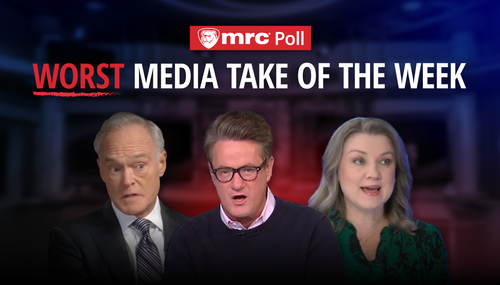The New York Times can’t stop slobbering over 13th, a Black Lives Matter-style documentary by activist Ava DuVernay that takes a conspiratorial left-wing view equating prison labor as black slavery. (The title refers to the 13th Amendment that abolished slavery.)
Hard-left controversialist Van Jones and Castro-loving Communist Angela Davis feature in the flick, though NYT’s Cara Buckley doesn’t bring those names up in her press-release style laudatory interview with DuVernay for Thursday’s Arts section. She simply provided more glowing publicity in the ridiculously headlined “Examining Modern Slavery In America.”
Buckley signed on to that paranoid view of America as a slave-state:
Ava DuVernay’s new documentary, “13th,” opened the New York Film Festival last week with a thunderclap, relating the damning story of how, in the age of mass incarceration, prisons have largely become plantations, disproportionately warehousing and exploiting African-American men. The title of the film, which reaches theaters and Netflix on Friday, refers to the 13th Amendment to the Constitution abolishing slavery except as punishment for a crime, a crucial loophole that, in Ms. DuVernay’s forceful telling, has been used for political gain and profit.
In a conversation before the premiere of “13th,” Ms. DuVernay explained how prisoners are being enslaved, why she chose to hire only women to direct her television show and why she dislikes the word “diversity.” Here are edited excerpts from the conversation:
Buckley: You draw a link between people who said, “I would never have been a slave owner, I would never have put up with that back then” and people putting up with an iteration of it now.
DuVernay: ’ve heard really well-meaning white people say, “I would never have been one of them.” And I hear a lot of black people, including myself, saying, “I couldn’t have been an enslaved person.” But when you take apart some of the pieces of what slavery was, you see they are mirroring the current day. We are re-enslaved by the millions. We are turning our eyes away from the horrors of what’s happening inside. We are participating as slave masters because we consume products and elect politicians and are complicit in enabling the system. So it’s not a one-to-one comparison, it’s an emotional comparison.
Buckley: One thing that was shocking was the number of companies that used prison labor.
DuVernay: The one that was more disconcerting to me was Victoria’s Secret. They did it until it was made public, and then changed their practices, and so did J. C. Penny...
That would be J.C. Penney, NYT. The Victoria’s Secret project actually ended 20 years ago; and apparently some of the (female) prisoners who sewed garments in prison were hired by Third Generation, the supplier to Victoria’s Secret, after they were released, according to a National Institute of Justice study. But apparently idle hands are preferable in prison.
DuVernay didn’t even give a Republican convert a break.
Buckley: It’s a surprise to hear Newt Gingrich criticizing discrepancies between sentencing for crack and powder cocaine and saying a white person cannot ever understand what it’s like to be a black person in this country.
DuVernay: He’s been talking about that for a little while, in smaller rooms. I wanted to make sure that whatever we think of him and folks who are conservatives -- we think that there’s no compassion for the plight of people of color -- that there are other things there. Within that, I wanted to interrogate the why of it. Why are they trying to decarcerate? What is in it for them? And you know some of it, it’s a real religious thing, a really kind of evangelical “this is not humane.” But for many others, the switch of focus from traditional jails and prisons to community supervision, surveillance and GPS tracking is about new business opportunities.
Buckley: How do you get the money interests out of prisons?
DuVernay: It’s really going to take a revolution in thought from the majority of people in this country, to push politicians to really unlegalize a lot of these practices....
Buckley even couched her soft criticisms in a praise sandwich:
Buckley: There was outcry that your film “Selma” was not nominated for best picture or best actor, and also loud criticism from people saying you mischaracterized L.B.J. But that obviously didn’t slow you down.
DuVernay predictably blamed white “privilege” for the snub.
DuVernay: That wasn’t a huge deal to me. Beyond the fact that it didn’t have any teeth, I thought that it was an argument that came from a position of privilege, not placing value on the thoughts and perspectives of someone who was not like them....
The interview ended with this nugget of hard-nosed journalism:
Buckley: Was “13th” hard to do emotionally?
DuVernay: Yeah, I cried a lot making it. It’s really, really hard to look at that archival footage. Hours and hours and hours of watching traumatic images to try to figure out what’s too much, what’s not enough. It’s tough business.
Critic Kyle Smith had a more cynical and fact-based review in Wednesday’s New York Post, with rebuttals you would never find in the Times.
Disappointingly, given the importance of the underlying issues, the film is a morass of distortions, half-truths, calculated omissions, absurd hyperbole and outright falsehoods. Equating Donald Trump supporters with Deep South lynch mobs isn’t even its most outlandish tactic..... unabashedly designed to motivate left-wing voters to get them to the polls....the film saves the worst for last, closing with the shocking contention that blacks have made so little progress in the last 50 years that we’re still living in the Jim Crow era under a different name. This is an insult to the Civil Rights-era heroes who moved mountains in the cause of liberty and justice. It’s an insult to Martin Luther King Jr., the hero of DuVernay’s last film, “Selma.”




